Vintage Bikes, Coffee Shops, and Community
“Social distancing machine” is an oft-repeated description of motorcycles during the COVID-19 pandemic. Sure. The motorcycle is often associated with lone riders traversing open roads, a symbol of our desire to leave society behind and escape into ‘freedom’. For me., however, the motorcycle is actually a social connection machine. What I miss most right now are rides with friends that start, pause, or conclude with a chat over coffee. Especially in one of the numerous motorcycle coffee shops that have popped up in my region and across the United States over the past few years. It makes sense to combine caffeine and gasoline in these spaces. Riders love sharing stories about their bikes and rides, and the coffee house is a centuries-old space for telling tales. What’s often fascinating about the new moto coffee shops is their connection to the past, especially through a passion for vintage motorcycles. These places offer a nod to the café racers of decades gone by who made the Ace Café a staple of the collective imagination, while at the same time they are reshaping contemporary moto culture. The contemporary motorcycle coffee shop unites people and connects us to a shared history through the machines and beverages that keep us moving forward. They contribute to the creation of community. Why have a fascination for vintage motorcycles and preferences for artisan coffee converged in a particular way at this precise moment? And what do they tell us about the sociability of motorcycles and coffee?
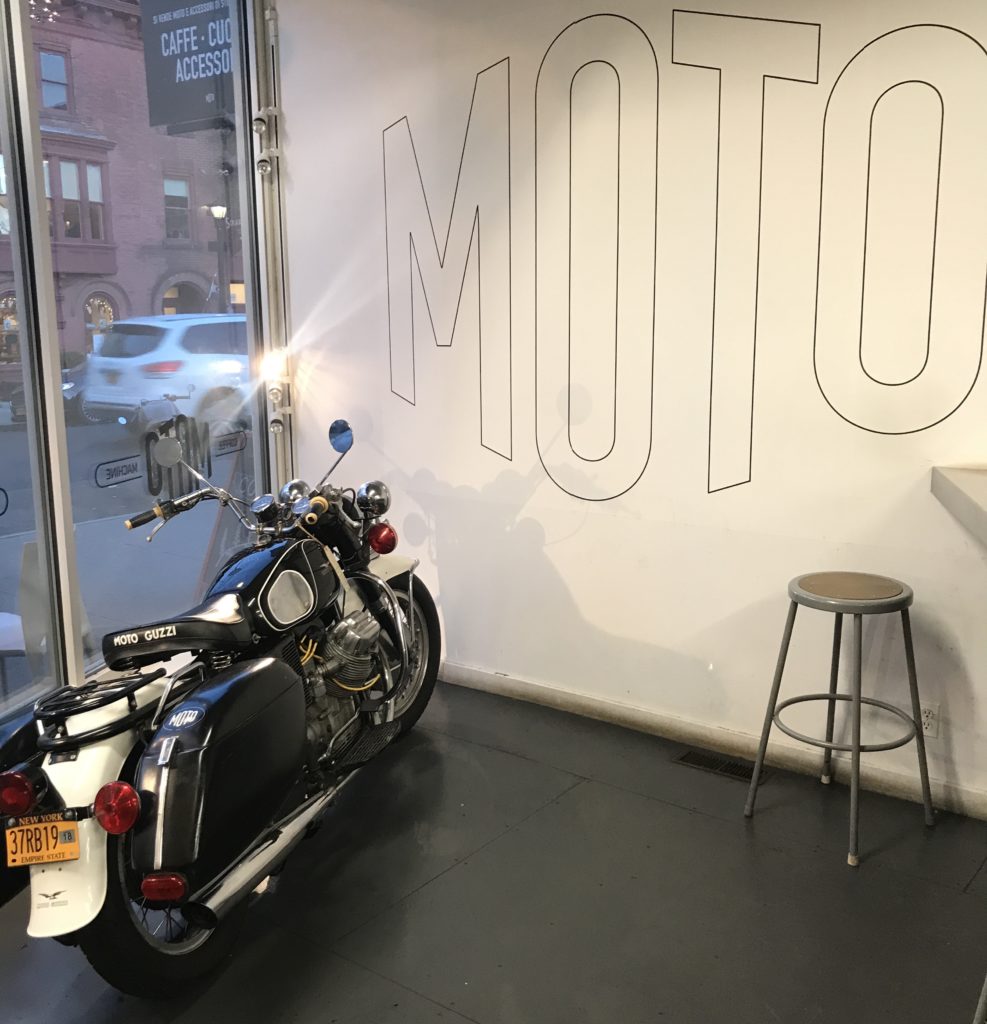
A couple of summers ago, my companions designated me the lead on a short 50-mile ride from Schenectady, along the Hudson River to Moto Coffee Machine in Hudson, New York. The shop, which opened in 2015, is housed in one of the many historic brick buildings that line Warren Street, a half-mile stretch of antique shops, vintage clothing stores and modern eateries. You know you’ve arrived when you see owner Antony Katz’s 1999 customized black Ducati Monster parked in front among many other motorcycles of all ages, makes and models. In the front windows, Katz always features vintage motorcycles, often Ducatis or Moto Guzzis. The multipurpose space is laid out with a long coffee counter and an eating area in the front and a section for motorcycle gear and mechanics’ lifts in the back. Placed throughout are Katz’s own bikes as well as machines for sale, an assortment of vintage and modern Hondas, BMWs, Italian and British bikes and whatever else he finds of interest. Katz, a native Brit with Italian origins, started riding and wrenching on motorcycles more than 30 years ago.
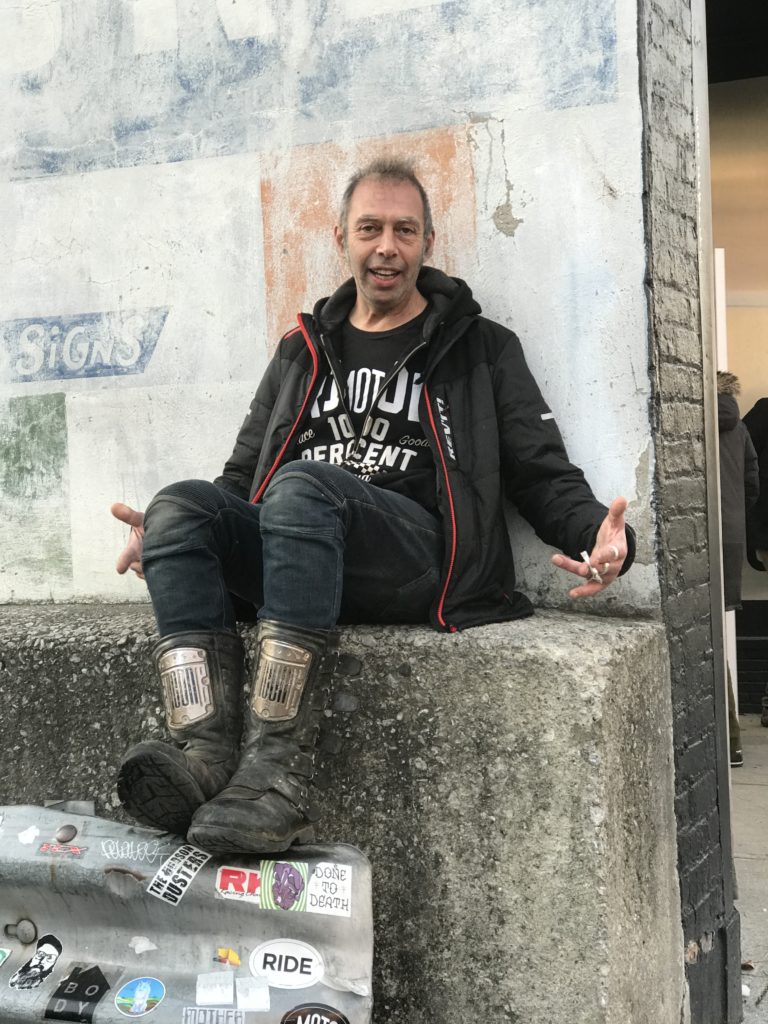
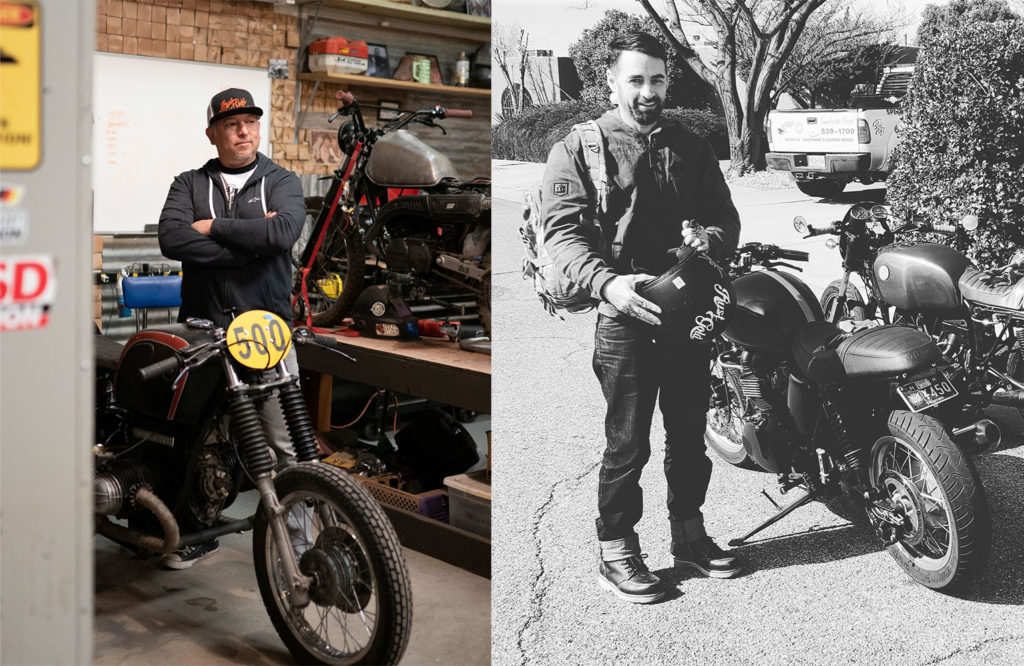
The plateaus of the Sandia Mountains in Albuquerque, New Mexico is where you’ll find the two connected shops of Rust is Gold Coffee and RIG Coffee and Garage. Shop founder Thaison Garcia first opened Rust is Gold in a multi-vendor antique mall. The repurposed and weathered wood décor offers a fitting background for the display of custom bikes built from vintage frames. Veteran and middle-school teacher Garcia and his business partner Steven Maes, a film industry art director and writer/director of the award-winning film Caffeine & Gasoline, note that, “We want to share [our] passion for vintage style and traditional values in a venue that displays those treasures for all to enjoy.” The first shop is a popular gathering place for riders passing through Albuquerque on Route 66 trips and serves as a starting point for seasonal “rides to the capital” of Santa Fe along the historic Turquoise Trail. Collectors of antiques often take a seat at one of the shop’s welcoming round tables and strike up conversations with bikers. What Garcia was missing in the first location, however, was a place to work on vintage bikes. Maes found a space that would allow café operations to take place side-by-side with a full-service garage. The result was RIG, which separates the coffee counter from a seating area and performance stage and leads to a large shop floor with multiple motorcycles in various stages of customization or restoration. Garcia and Maes began building customs 10 years ago, and are particularly fond of building café racers from inexpensive old motorcycles.
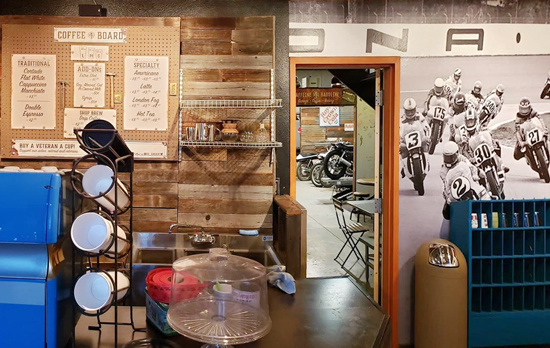
These are just two examples people creating social spaces mixing vintage motorcycles and coffee in USA, and creating a particular kind of community. The Pacific Northwest is home to some of the earliest of this new generation of motorcycle coffee shops: See See Motor Coffee in Portland, Oregon began operations in 2008 “to create a more inclusive motorcycle scene.” In the Midwest, Blip Roasters of Kansas City has created a united motorcycling community made up of every possible biker subculture from vintage café racers to custom road warriors, all talking bikes and rides over coffee every Sunday at the shop (temporarily suspended of course). And just over a year ago in my region of upstate New York, Shawn Beebie opened Second Wind Coffee, which takes its name from the idea of second chances for both people and vintage motorcycles. Plans for a “Motorcycles on Main Street” event late this summer open to all riders and moto-enthusiasts are now in the works.
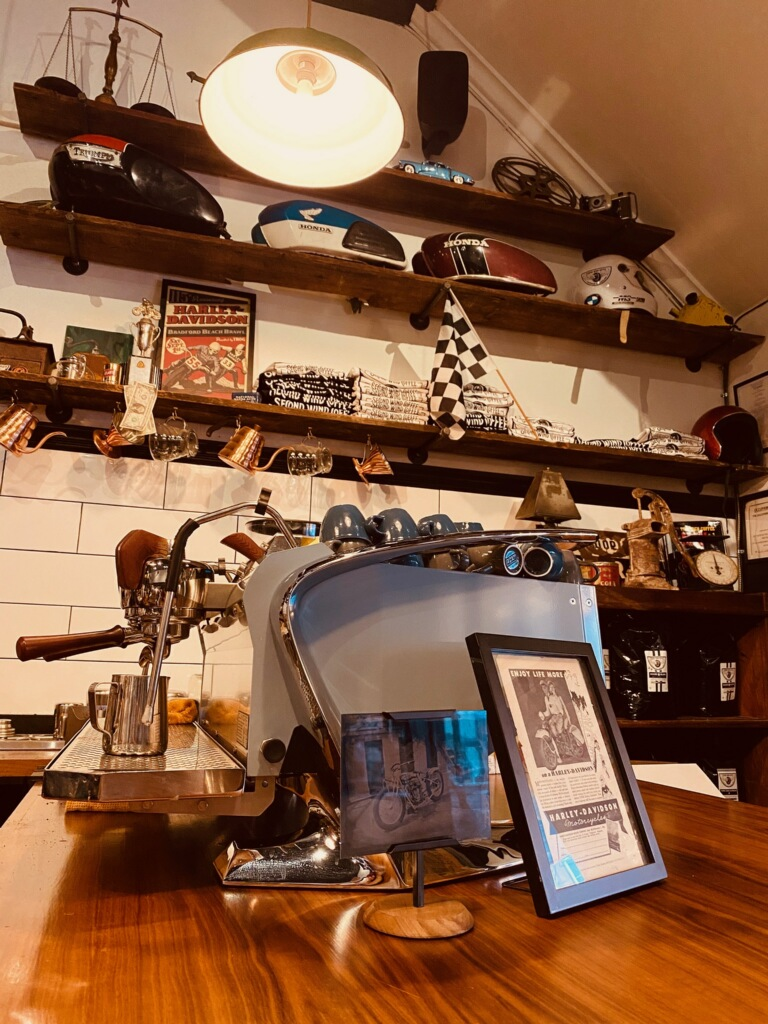
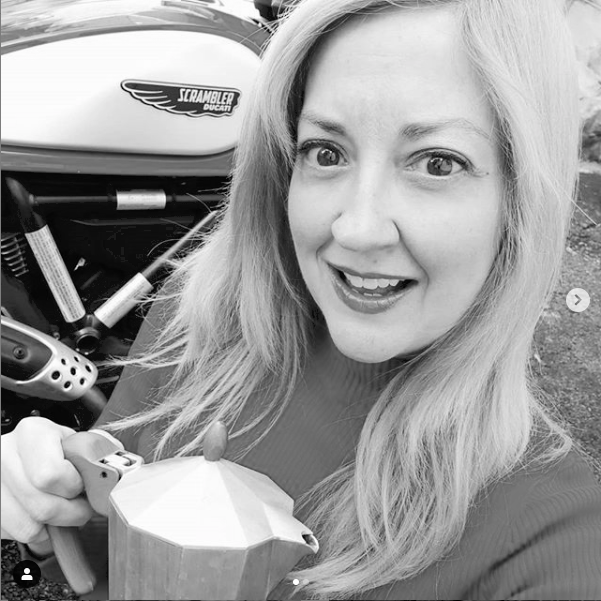
Related Posts
July 10, 2017
The Vintagent Selects: Why I Ride – Episode 1: Passion At Work
"The first time I felt that tire hook…

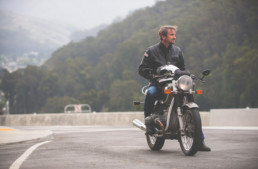
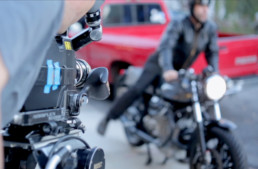
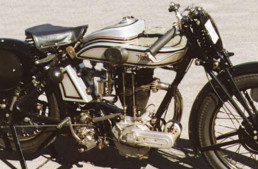
Look forward to that day when we can ride to our favorite coffee stops and chat it up with friends. Glad these places are around.
Let’s just hope ( against all hope ) that the majority of them can survive .
Rock On – Ride On (I checked … a full face helmet does qualify as a face covering ) Remain Calm ( in spite of it all and the fools running the show ) … and do … once this comes to and end … Carry On .. my wayward sons … and daughters
Va bene .. Ciao 😎
Dr. Pojmann, Your delight in the subject of coffee and motorcycles is evident. Fantastic read.